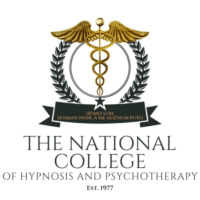
Introduction
This is the third stage of our training which introduces your pathway if you are a hypnotherapist wanting UKCP registration and accreditation as a hypno-psychotherapist.
On this pathway, you will begin to gain the knowledge and practical skills that will allow you to work with your clients effectively using hypno-psychotherapy. Our Stage 3 content will encourage not only competence but also the confidence to be able to explore depth psychology and therefore address more complex issues in the clinical setting.
Stage 3 is the diploma stage, at the completion of which you will receive the award of the Diploma in Hypno-Psychotherapy, with the designating letters DHP(NC).
The syllabus for this stage requires you to attend two pre-weekends of preparation (covering person-centred skills and ethics) and then five more weekends at monthly intervals, and finally a blended learning research methods module, whilst undertaking a programme of home study. You will be required to carry out 100 client-contact hours supervised at a ration of 6:1.
What You’ll Learn
This stage covers the thinking and models that have shaped modern psychotherapy including Freud, Jung, Adler and the major psychodynamic theorists. You will also study Gestalt methods, behavioural theory, Cognitive Behavioural Therapy and Transactional Analysis, as always there is an element of practical assessment throughout the stage. Finally you will undertake a blended learning research methods module, looking at how to read, undertake and apply research to your practice.
Your Seven Modules on Stage 3:
The Pre-Weekends - Person-Centred and Ethical Practice
- Carl Rogers
- Person-centred theory
- Person-centred practice
- Ethics in hypno-psychotherapy
Module 15 - Humanistic and Gestalt
Maslow
Perls
Gestalt
Module 16 - Psychodynamics (Neo-Freudian)
Sullivan
Bandura
Kelly
Bowlby
Fromm
Horney
Module 17 - Transactional Analysis
Transactional Analysis
Open frame
Module 18 - Behavioural and Cognitive Behavioural Approaches
Watson
Skinner
Ellis
Beck
Cognitive Behavioural Therapy
Stage 3 at a Glance:
Hours of Attendance:
- 139 over seven weekends and a blended learning research methods module
Mode of Study:
- Face to face tuition
- Practical demonstrations
- Group practical exercises
- Discussion forums
- Evening tutorials
- Comprehensive home study with a wide range of resources
- 100 client-contact hours supervised at a ratio of 6:1
Assessment:
- 1 x 3500 word essay
- Ethics paper
- Case study
- 2 x triad assessment
- Keystone assessments for research methods
- Continuous assessment by tutor
What Next?
- Upon successful completion students will be awarded the Diploma in Hypnosis and psychotherapy DHP(NC)
- Progression onto your Stage 4
